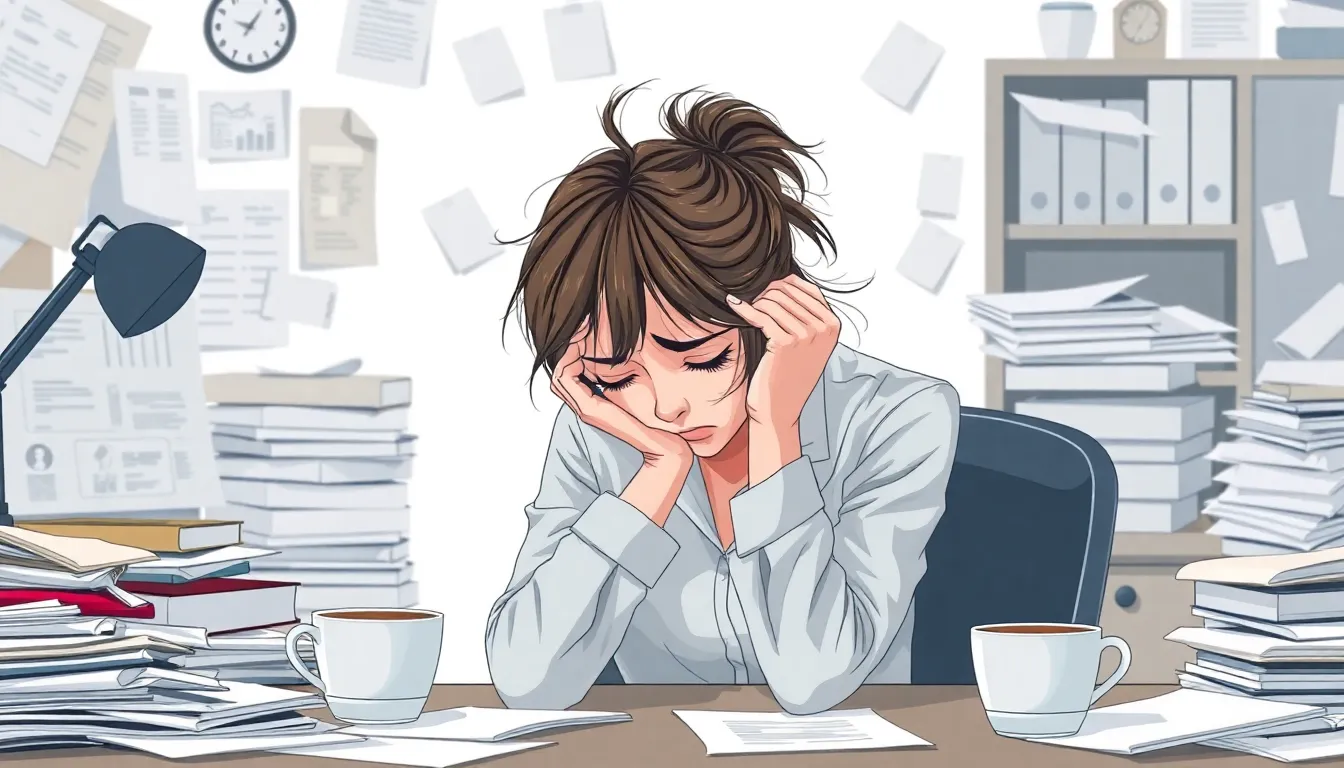In a world where “rise and grind” is the mantra of the day, hustle culture has taken the spotlight, promising success for those who never sleep. But what if this relentless pursuit of productivity is more toxic than it seems? The truth is, while ambition can be admirable, the pressure to constantly hustle can lead to burnout, anxiety, and a serious case of the “I-can’t-even.”
Imagine trading your well-deserved downtime for another late-night work session. Sounds fun, right? Spoiler alert: it’s not. As society glorifies the grind, it’s time to question whether this hustle is truly worth the toll it takes on mental health and well-being. Let’s dive into why embracing balance might just be the real key to success—without sacrificing sanity.
Table of Contents
ToggleUnderstanding Hustle Culture
Hustle culture emphasizes relentless work and continuous striving for success. This mentality often leads to negative consequences such as stress and burnout.
Definition of Hustle Culture
Hustle culture refers to a social environment that glorifies overworking and constant productivity. Individuals frequently adopt the mindset that success comes from non-stop efforts. This belief manifests in phrases like “rise and grind,” suggesting that hard work is the only path to achievement. Many people associate self-worth with their output, often neglecting rest and personal well-being. Such a narrow focus can drive unhealthy behaviors and diminish life satisfaction.
Historical Context
Hustle culture has roots in the American work ethic, which dates back to the Puritans’ emphasis on hard work. In the early 20th century, the rise of industrialization further entrenched the idea that working long hours results in greater rewards. As society evolved, the tech boom of the late 20th and early 21st centuries intensified this mentality. Startups popularized the “always-on” culture, reinforcing the belief that continuous work leads to success. This historical progression fuels today’s challenges, pushing many individuals to sacrifice their personal lives for professional gains.
The Negative Impacts of Hustle Culture

Hustle culture has severe negative implications, particularly on mental and physical health. Continuous pressure to achieve often leads to detrimental outcomes.
Mental Health Consequences
Burnout frequently stems from incessant hustle, resulting in exhaustion and emotional distress. Anxiety levels rise as individuals grapple with the need to constantly be productive. Depression also becomes prevalent, driven by unrealistic expectations and comparison to others. Social isolation often occurs when people prioritize work over personal relationships, leaving individuals feeling disconnected. Chronic stress can lead to long-term mental health issues, diminishing overall life satisfaction.
Physical Health Detriments
Working excessive hours often results in poor sleep patterns, which affect overall well-being. Fatigue increases as days blend into nights without sufficient rest. Physical fitness typically declines due to neglect of exercise and nutrition, contributing to weight gain and related health issues. Additionally, stress weakens the immune system, making individuals more susceptible to illness. Overall, the relentless grind takes a toll on the body, leading to serious consequences that jeopardize long-term health.
Signs That Hustle Culture Is Toxic
Hustle culture manifests in various harmful ways. Recognizing these signs can help individuals reclaim their well-being.
Burnout and Exhaustion
Burnout results from relentless work demands and insufficient rest. Fatigue sets in as individuals push themselves beyond limits. Chronic stress leads to physical and emotional exhaustion, which affects productivity. Signs of burnout include irritability and diminished motivation. Employers often overlook these symptoms, prioritizing performance over well-being. Addressing burnout means recognizing the need for breaks and healthy boundaries. Finding time for self-care becomes essential for restoring energy and mental health.
Lack of Work-Life Balance
A lack of work-life balance characterizes hustle culture. Constantly prioritizing work creates conflict with personal and family life. Relationships suffer as individuals sacrifice quality time for professional commitments. This imbalance fosters feelings of guilt and inadequacy. Studies show nearly 76% of professionals experience work-life conflict, impacting overall satisfaction. Individuals in hustle culture often neglect hobbies and personal interests, leading to diminished happiness. Reestablishing priorities and setting boundaries can restore balance. Emphasizing the importance of downtime fosters healthier lifestyles.
Alternatives to Hustle Culture
Transitioning away from hustle culture involves adopting healthier, more sustainable lifestyles. These alternatives focus on balance, well-being, and fulfillment without the relentless grind.
Embracing Slow Living
Slow living counters the fast-paced, high-stress environment of hustle culture. This lifestyle emphasizes mindfulness, presence, and intentionality in daily activities. Engaging in slow living encourages individuals to savor each moment rather than rush through tasks. It fosters creativity and deeper connections with others. Practicing slow living often leads to enhanced mental clarity and reduced anxiety. Activities such as cooking, gardening, or enjoying nature can provide joy and fulfillment. When individuals prioritize quality over quantity, they often achieve greater satisfaction in both work and life.
Prioritizing Mental Well-Being
Mental well-being serves as a crucial aspect of rejecting hustle culture. Allocating time for self-care and reflection enables individuals to recharge and maintain resilience. Techniques such as meditation, yoga, or journaling contribute to emotional health. Incorporating regular breaks into work schedules helps prevent burnout and fosters productivity. Building a support network of friends and family creates a sense of belonging and reduces feelings of isolation. Prioritizing mental health doesn’t only promote personal well-being but also enhances professional performance. Emphasizing these practices allows individuals to thrive in a balanced, fulfilling manner.
Hustle culture’s relentless push for productivity can lead to serious mental and physical health issues. Recognizing the signs of toxicity is crucial for individuals seeking balance in their lives. Embracing alternatives like slow living and prioritizing self-care can foster a healthier mindset and enhance overall well-being.
By stepping back from the grind and focusing on intentional living, individuals can cultivate deeper connections and find fulfillment beyond professional achievements. It’s time to challenge the notion that constant work equates to success and instead promote a lifestyle that values well-being, balance, and joy.





